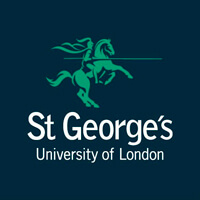fees waived
Physiotherapy, BSc (Hons)
St George's, University of London, United Kingdom
Subject ranking
UK / Times 2025 13th
UK / Guardian 2025 20th
UK / THE 2025 36th
Costs
food & rentS$24.9K / year
Entry requirements
Scholarships
Limited quantity
Information
Code
Intakes
Website (External)
Programmes
Information
Duration
2028
Physiotherapists assist individuals in recovering movement and function following illness or injury, addressing a wide range of conditions including neurological, musculoskeletal, cardiovascular, and respiratory issues such as strokes, arthritis, and sports injuries. This accredited BSc in Physiotherapy, recognised by the Chartered Society of Physiotherapy and the Health and Care Professions Council, covers anatomy, physiology, therapeutic exercise, and health promotion, equipping graduates with essential skills for autonomous practice.The programme emphasises hands-on learning in simulated environments and dedicated labs, alongside placements in London hospitals, community settings, and other facilities like sports clubs. Students collaborate interprofessionally, gaining experience in multidisciplinary teams for diverse patient groups. Upon completion, graduates are eligible for registration with professional bodies and can pursue roles in settings such as rehabilitation centres and intensive care units.
By combining theoretical knowledge with practical experience, this course explores concepts, principles and theories of anatomy, physiology, movement, therapeutic exercise, electro-physical modalities and health promotion. Your first year is primarily university-based and involves studying alongside medical, radiography, healthcare science and biomedical science students. This collaborative interprofessional education helps you develop invaluable communication and team-building skills. Years 2 and 3 combine academic modules and clinical practice based on robust scientific evidence. As you learn to integrate the theory with core practical skills, you also learn how to manage the rehabilitation of patients with the help of our specialist clinicians. A comprehensive research project in year 3 also puts your analytical skills to the test, and clinical placements require you to work at high levels of safety, competency and autonomy. You can find further information about the modules you can expect to study on this course on our website: https://www.sgul.ac.uk/study/courses/physiotherapy#course-structure
A local representative of St George's, University of London in Singapore is available online to assist you with enquiries about this course.

